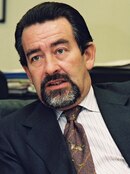
Back Eleccions al Parlament Europeu de 2004 (Portugal) Catalan Europawahl in Portugal 2004 German Elecciones al Parlamento Europeo de 2004 (Portugal) Spanish Élections européennes de 2004 au Portugal French Elezioni europee del 2004 in Portogallo Italian 2004年欧州議会議員選挙 (ポルトガル) Japanese Wybory do Parlamentu Europejskiego w Portugalii w 2004 roku Polish Eleições europeias de 2004 (Portugal) Portuguese
| |||||||||||||||||||||||||||||||||||||||||||||||||||||||||||||||||
24 seats to the European Parliament | |||||||||||||||||||||||||||||||||||||||||||||||||||||||||||||||||
|---|---|---|---|---|---|---|---|---|---|---|---|---|---|---|---|---|---|---|---|---|---|---|---|---|---|---|---|---|---|---|---|---|---|---|---|---|---|---|---|---|---|---|---|---|---|---|---|---|---|---|---|---|---|---|---|---|---|---|---|---|---|---|---|---|---|
| Turnout | 38.6% | ||||||||||||||||||||||||||||||||||||||||||||||||||||||||||||||||
| |||||||||||||||||||||||||||||||||||||||||||||||||||||||||||||||||
An election of MEPs representing Portugal for the 2004-2009 term of the European Parliament was held on 13 June 2004. It was part of the wider 2004 European election.
The Socialist Party (PS) was the big winner of the elections, achieving their best result in a European election ever. The party won 44.5% of the votes, an increase of 1.5%, and held on to the 12 seats won in 1999. However the Socialist victory, and the campaign overall, was overshadowed by the sudden death of the PS top candidate, António Sousa Franco. Sousa Franco died of a heart attack while campaigning in Matosinhos, just four days before election day. António Costa, number 2 on the list, became the Socialists' top candidate after Sousa Franco's death.
The Social Democrats (PSD) and the People's Party (CDS–PP) contested the election in a coalition called "Forward Portugal" (FP). The coalition had a very weak performance, winning just 33% of the votes, a big drop compared with the combined total of 39% the PSD+CDS had in 1999. The PSD lost two seats, while CDS–PP held on to their two seats.
The Democratic Unity Coalition (CDU) dropped 1% and fell below 10% of the votes for the first time. CDU was still able to hold on to the two seats they had won in 1999. The Left Bloc (BE) gained a seat for the EU parliament for the first time, and saw its share of vote increase to almost 5%, an increase of more than 3% compared with 1999.
Turnout dropped compared with 1999, with 38.6% of voters casting a ballot.
© MMXXIII Rich X Search. We shall prevail. All rights reserved. Rich X Search



